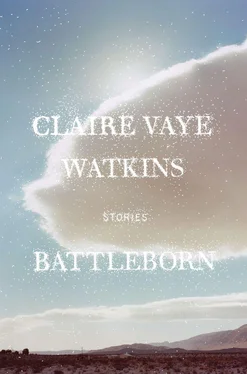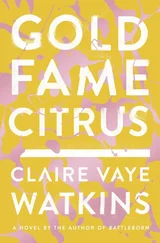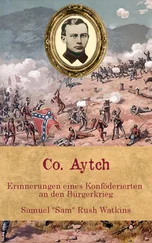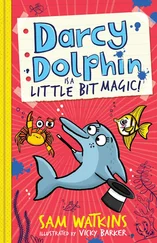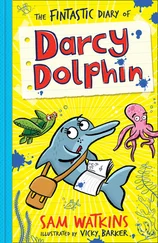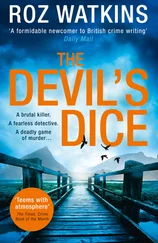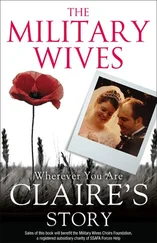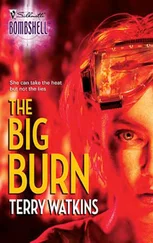The crowd had gone quiet and still, transfixed by the carnage. Finally the impresario directed his vaqueros to lasso the bulls and bring them in. He marched to the center of the arena, where General Scott lay grunting and gurgling in the mud made by his own innards, and declared the bulls the victors of the day. Without warning, he shot the General dead.
The mob slowly shuffled from the arena, no uproar or gaiety left in them. The fiddlers held their fiddle cases to their chests. Errol and I stayed unmoving at our branch perch for just a bit, the vinegar smell from the rotten apples rising all around us. When we finally climbed down, the descent reminded me of how high my spirits had been upon climbing into the tree, and how low they were now.
As we walked it began to rain and we went on, letting the rain get us. Somewhere, I thought, those señoritas are running with their lovely white dresses gathered in their hands.
After some time Errol said, “I believe that was a spectacle I would have rather prevented than witnessed.”
“Me, too,” I told him, and we went on in silence.
It had been easy to succumb to my own deceptions while eating plum duff and roast beef in the sunlight. But now they were suddenly undeniable. We were returning to a ten-by-ten plot of land which I had deceived my brother into believing held his fortune. All my brother had accumulated in California was a gambler’s thirst and some salty talk. I was a liar, a manipulator and a freak.
I said, “You should marry her in a church.”
“Don’t you know?” Errol said. The rain had stopped now, leaving all the leaves and the soil wet and fragrant and colored vividly. “This is the greatest church there is.”
XIII. ORACLE BONES
I had promised that more gold would come but more gold would not come, and after that mournful battle Errol was sick with expectation. He went to town whenever he had the chance, where he spent his share of element on card games and brandy and tarantula juice.
With him gone I spent more time with the Chinamen. The little one was an ace with a rock and it was one of my favorite pastimes to skip stones across the river with him. Sometimes we three whittled miniature boats to race on the water. The elder carved using a small blade with a milky jade handle the exact color of the river at dawn. His ships were the most graceful and well designed. Some of the happiest hours of my life were spent after a whiff or two off the Chinaman’s ivory pipe, watching those moonlit vessels spear along the nighttime water and vanish into the darkness.
Some evenings the tongs took turns shaving each other’s heads with the jade knife while I read aloud from the two volumes I had to my name. (The tongs preferred Odysseus to Christ.) One night the boy interrupted my reading to ask whether I might teach him. I was a frightful tutor, I fear, but his sharpness hid my inadequacies and soon he had memorized Homer’s first song. Muse! sing the Man by long experience tried, /Who, fertile in resources, wander’d wide . He orated to his uncle, with the old one smiling dutifully, as though he understood every fine word.
One day the boy snared a deer, and that evening we sat smoking and pulling greasy venison from the spit. Full of roast meat and smoke, I found myself going on and on. I talked mostly of Errol, of the darkness I saw in him and the light I saw in him, too. Of my fear of what would become of him in the territory without me. Then, without thinking, I said to the boy, “I have peculiar vision, too. Like you at the sluice. I can see what’s not yet happened. It’s a condition I have. A deformity.”
He translated this to his uncle, who paused at his venison shank, sifted another thatch of black powder into the bowl, and handed it to me. As I took it, he spoke through the boy.
He said, “There are many people see in all directions. At home, seers set bones in fire, read future in the cracks. These men are…” The boy searched for the appropriate word, settling finally for two. “A gift.”
Something went through me then: a phantasm that warmed me, physically. The sensation of truly belonging in a place and a moment is a rare one. I have not felt it since.
The Chinaman had contentedly taken up his venison again. I must have gaped at it for some time, because the boy leaned toward me. “Wrong bone.”
Errol never asked what I did when he was away, and I never told him. I grew more content, and he became more wretched. Often he would stay in some parlor or another until dawn, then walk the three miles back to the river and take up his post at the rocker, emitting a stench that could have felled a man at sixty rod. By now our silt had given way to orangey clay, then black rock. Each day Errol looked more deranged. This was the state of things when the second stagecoach came.
XIV. THE SECOND COACH
We heard the news from a man who hollered it across the diggings. Errol stopped his rocking, rinsed his soiled hands and face in the river, replaced his hat, and said, “I have a letter to retrieve.” Then he set off without a word.
The tongs continued their digging and sifting. The old man was wary of large gatherings, and rightfully so. Forty-niners were a volatile bunch of drunkards and criminals, especially with their sentiments roused. And nothing so roused them as a mail coach.
I had to follow Errol. I had the sense that my brother stood at a crevasse, that the vellum keeping him on this side was as thin as a sheet of Marjorie Salter’s stationery.
The stagecoach had stopped beneath the arms of a giant, leafless valley oak, and men were already gathered around it. Suddenly, I felt a pressing at my brow. The arrangement of the bare branches’ veiny shadows along the side and top of the coach and the dusty pool of men’s hats beneath it sent forth an augury. I saw from the beginning how the end would be. I saw Errol approach the coach, and saw him fail to receive the letter he so anxiously wanted. I pressed my hand to my forehead but took it away before my brother should notice.
The mind is a mine. So often we revisit its winding, unsound caverns when we ought to stay out.
At that moment I traveled down a long-forgotten tunnel of memory. At the end of the tunnel I found a cat. When I was nine or so, Errol twelve or thirteen, our mother let us feed a litter of barn cats. There was one for each of us children. Mine was white, with gray boots and gray, eyebrowlike markings. I called her Isabel, because I thought Isabel was the soundest name for a cat that ever there was. Errol called her Eyeballs, probably because she was a touch bulge-eyed. Each time I said Isabel —when I fed her or just when I went out to be with her — Errol would be right there, saying Eyeballs, Eyeballs . I can still hear him. And lo, the family started calling her Eyeballs, too. People took to Errol like that, even our own parents. He had a way of making you love him even while he was being cruel. I don’t know why, but I think we could have been all right, Errol and I; I could have put up with his temper and his beating on me and the way he’d get quiet and mean at the smallest thing bothering him. I think I could have forgiven him all this, could have been on good terms with him come December of 1849, when we rounded the glade and saw the coach spidered with the shadows of oak limbs. I could have warned Errol of the heartbreak I saw at the coach, and maybe he would have been better able to accept it. Maybe not, but maybe so. Maybe we would not have been plunged down the dark path we were on. If only I had spoken up. If only he had let Isabel be Isabel.
And so I stood in line watching Errol worry the brim of his hat and squatting on occasion to sift some dirt through his fingers or toss pebbles. When at last we reached the coachman Errol nudged me to indicate that I should call our name, maybe out of secret superstition or because his voice had gone with nerves. I showed surprise at the gesture, though of course I had none.
Читать дальше
